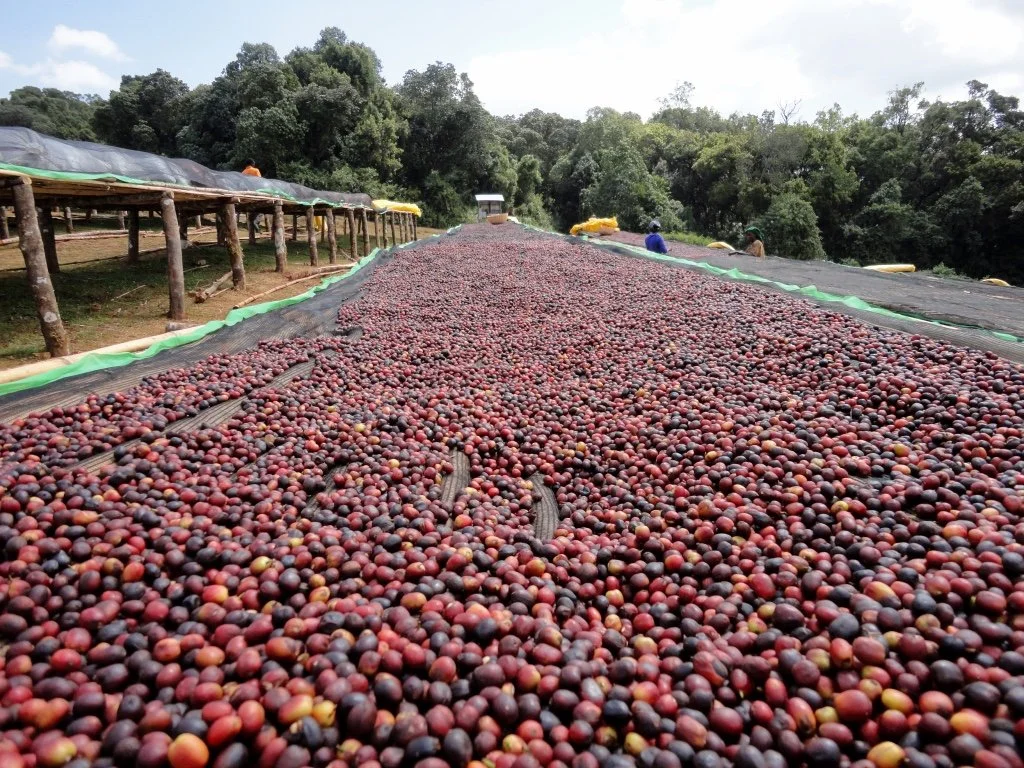SidamA Shantawane
MICROLOT
〰️
MICROLOT 〰️
Producer Several producers
Farm several
Region Sidamo, Bensa
Altitude 1950 masl
Process washed
Species Arabica
Varieties Heirloom et 74-165
Harvest December to January
ShantawAne
This coffee comes from a washing station in the town of Shantawane, which collects cherries from a number of small producers in the Bensa area, in southern Ethiopia. Bensa is a district (or woreda) in the Sidama region, well known for producing coffees that are floral, complex, and full of character. The coffee here grows at high altitudes – usually between 1,700 and 2,000 metres above sea level.
The farmers are mostly smallholders, working family-run plots where coffee grows alongside food crops like false banana (enset) and local legumes. This type of mixed farming is often referred to as “garden coffee”, and the farms are typically small – just 1 to 5 hectares – making the approach both small-scale and environmentally conscious.
After harvesting, the farmers pulp the coffee cherries on their own farms using traditional disc pulpers. They then take the beans to the washing station, where they are dried on raised African beds to ensure good airflow and even drying.
Once fully processed, the coffee is delivered to the Tracon dry mill, the exporter handling this lot. At Tracon, the beans are hulled and sorted using cutting-edge technology to ensure high-quality preparation. Their facility spans 27,000 square metres and is entirely dedicated to the final stages of coffee processing and export.
PROCESS
The coffee cherries are handpicked, then pulped by each individual producer on their own farm.
The beans are then brought to the washing station, where they undergo fermentation in cement tanks to break down the remaining mucillage. After that, they dry on raised African beds for around 10 to 15 days, depending on the weather.
This method is known as the “Fully Washed” process. What sets it apart is the fermentation stage in water, which helps remove the mucilage from the parchment. Unlike semi-washed processes, where the pulp is stripped off mechanically, this natural fermentation plays a key role in developing delicate flavours in the cup and also improves the coffee’s shelf life over time.
CUP PROFILE
Arômes: floral, green pepper, chocolate, rose
Flavors: blackcurrant, jasmin, sugar, stone fruits



